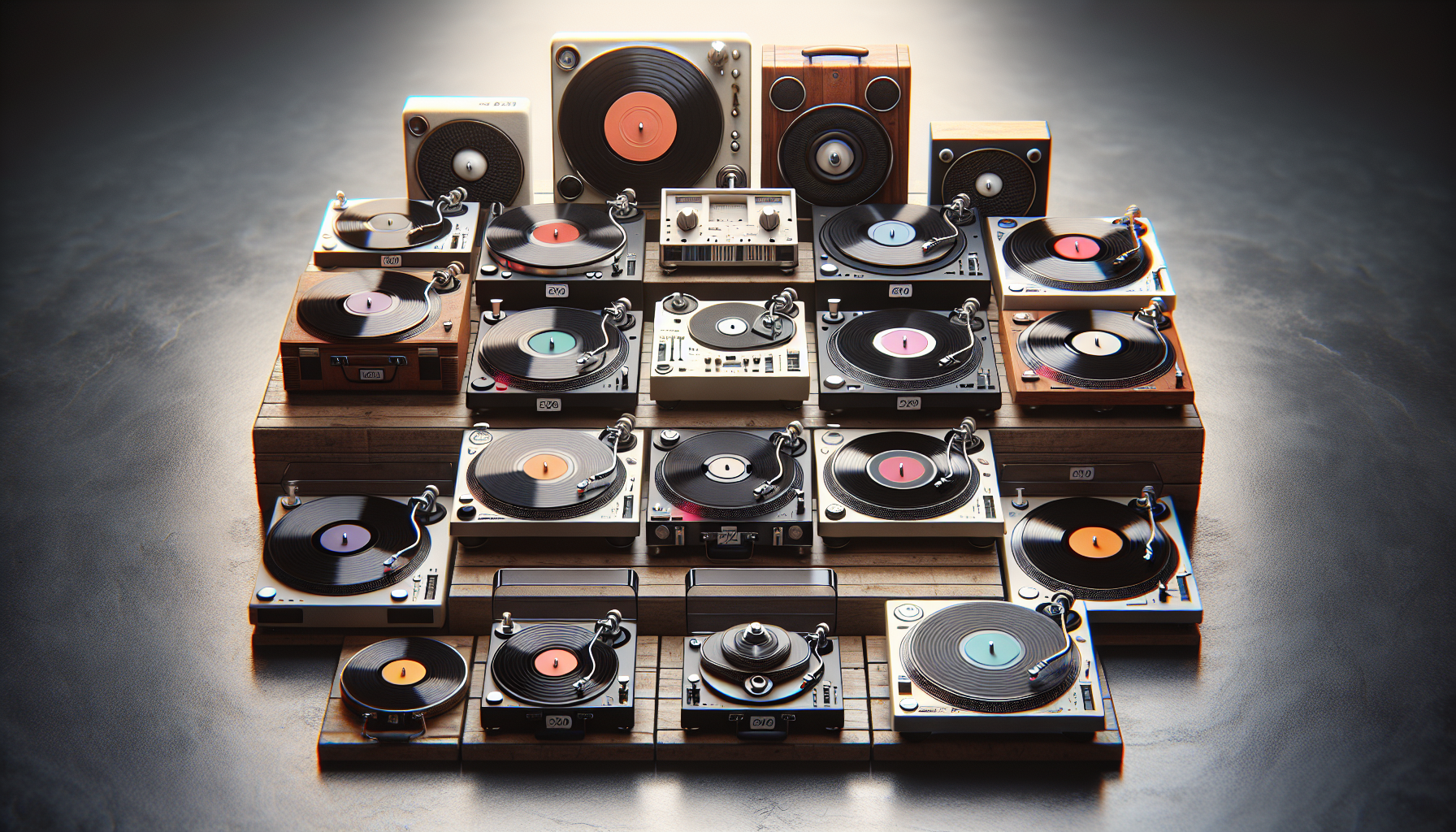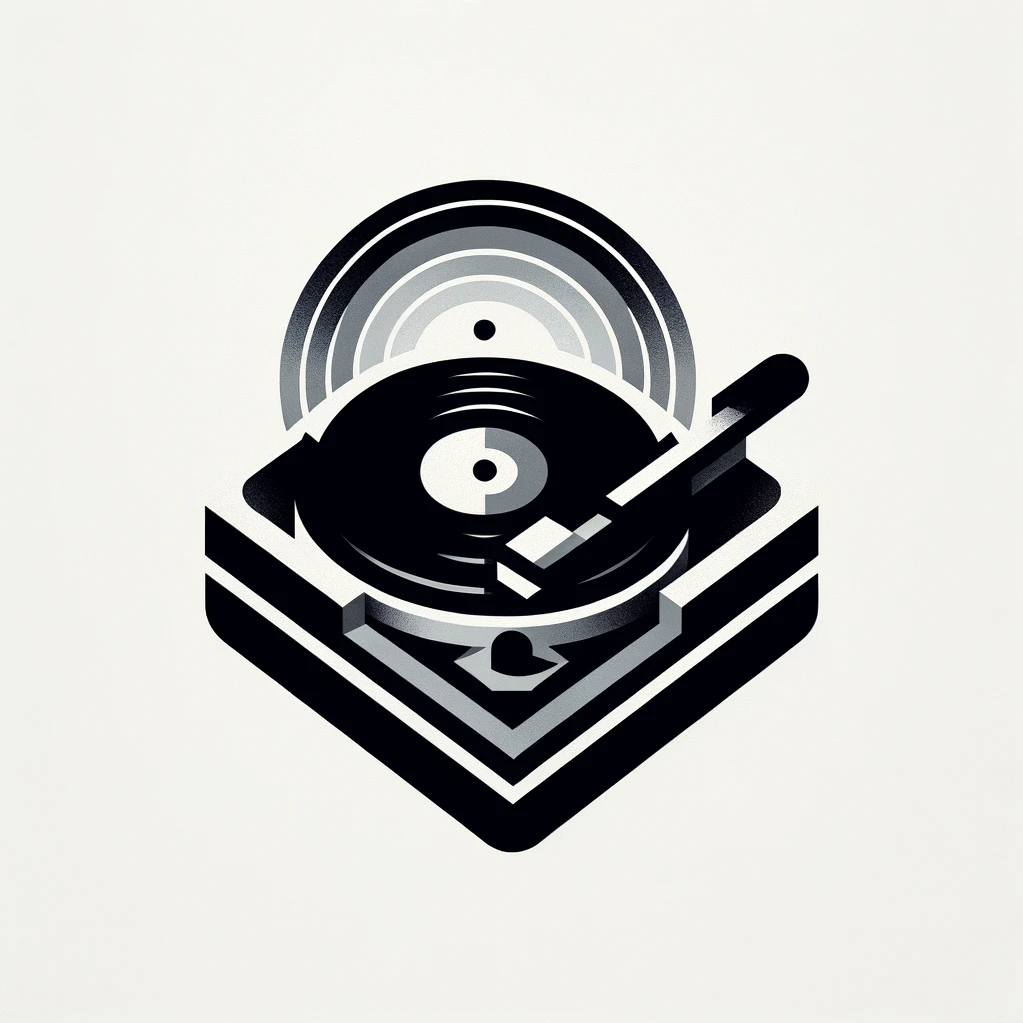Looking to indulge in your love for vinyl records without breaking the bank? Look no further! In this article, we will explore the search for the best turntable that suits your budget. Whether you’re a seasoned audiophile or a newcomer to the world of vinyl, we’ve got you covered. Join us as we delve into the options available and uncover the perfect turntable that won’t leave a dent in your wallet. Get ready to enjoy the warm, nostalgic sound of vinyl with the best turntable for your budget.
Factors to Consider
When looking for the best turntable for your budget, there are several important factors to consider. These factors will ultimately determine the quality of sound and overall performance of the turntable. By carefully evaluating these factors, you can make an informed decision and find a turntable that meets your needs and budget.
Price Range
The first factor to consider when searching for the best turntable is your price range. Turntables are available in a wide range of prices, so it’s important to establish your budget before starting your search. By determining how much you are willing to spend, you can narrow down your options and focus on turntables that fall within your price range.
Entry-level turntables
If you are on a tight budget, entry-level turntables are a great option to consider. These turntables are typically more affordable, making them an ideal choice for beginners or those looking for a budget-friendly option. While they may not have all the advanced features of higher-end models, entry-level turntables can still provide a satisfactory listening experience.
Mid-range turntables
Mid-range turntables offer a balance between price and performance. They are a step up from entry-level turntables and often come with additional features and better build quality. These turntables are suitable for both casual listeners and audiophiles who are looking for a better sound quality without breaking the bank.
High-end turntables
For those who are willing to invest more money into their turntable, high-end options are available. These turntables are known for their exceptional performance and top-tier components. While high-end turntables can be quite expensive, they provide an unmatched listening experience for audiophiles who are looking for the best sound quality and build construction.
Drive Types
Another important factor to consider when choosing a turntable is the drive type. The drive type refers to the mechanism that spins the platter, which supports and rotates the record. There are two main types of drive systems: belt-drive and direct-drive.
Belt-drive turntables
Belt-drive turntables use an elastic belt to connect the motor to the platter. This isolation of the motor helps reduce vibrations and noise, resulting in a quieter and more accurate playback. Belt-drive turntables are generally favored by audiophiles for their superior sound quality and better resistance to motor noise.
Direct-drive turntables
Direct-drive turntables, on the other hand, have the platter directly connected to the motor. This direct connection provides more torque and stability, making them ideal for DJing and scratching. Direct-drive turntables are known for their quick start and stop times, as well as their ability to maintain a constant speed, making them a popular choice for DJs and those who require precise playback.

Cartridge Types
The cartridge is another crucial component of a turntable, as it is responsible for translating the vibrations from the stylus into electrical signals that can be amplified and played through speakers or headphones. There are two main types of cartridges: Moving Magnet (MM) and Moving Coil (MC).
Moving Magnet (MM) cartridges
Moving Magnet cartridges are the most common type of cartridges found in turntables. They utilize a replaceable stylus and have a higher output voltage, making them compatible with a wide range of amplifiers. MM cartridges are generally more affordable than MC cartridges and offer a balanced sound reproduction.
Moving Coil (MC) cartridges
Moving Coil cartridges are considered to be a higher-end option and are known for their superior sound quality and finer tracking ability. They have a lower output voltage and require more precise amplification, making them compatible with specialized phono stages or preamps. MC cartridges are favored by audiophiles who are looking for the highest level of detail and accuracy in their sound reproduction.
Platter Material
The material used for the turntable’s platter can significantly impact the overall sound and performance. Two popular options are aluminum and acrylic platters.
Aluminum platter
Aluminum platters are commonly found in entry-level and mid-range turntables. They are known for their good balance of weight, cost, and performance. Aluminum platters provide a stable rotation and minimal resonance, resulting in accurate sound reproduction. While they may not offer the same level of detail as higher-end materials, they still provide a satisfactory listening experience.
Acrylic platter
Acrylic platters are often found in high-end turntables due to their superior performance. Acrylic provides better dampening properties, reducing vibrations and resonance. This allows for more accurate playback and improved clarity in the sound. While acrylic platters can be more expensive, they are worth considering if you are looking for the highest level of performance in your turntable.
Motor
The motor is a crucial component of a turntable, as it provides the necessary power to rotate the platter. When evaluating turntables, it’s important to consider the speed stability and noise level of the motor.
Speed stability
Speed stability refers to the ability of the motor to maintain a consistent rotational speed. A turntable with good speed stability will ensure that the music is played at the correct pitch and tempo. Look for turntables that have a well-designed motor and speed control mechanism to ensure accurate playback.
Noise level
Noise level is another important consideration when it comes to the motor. A noisy motor can introduce unwanted noise into the audio signal, negatively impacting the sound quality. Opt for turntables with motors that operate quietly, ensuring a clean and enjoyable listening experience.
Adjustability and Upgradability
When choosing a turntable, it’s essential to consider its adjustability and upgradability options. These features can enhance the overall listening experience and allow you to fine-tune your setup to your preferences.
Tonearm adjustability
The tonearm is responsible for holding the cartridge and stylus and positioning it on the record. Look for turntables that offer adjustable tonearms, as this allows for precise tracking force and alignment adjustments. This level of adjustability ensures optimal performance and extends the lifespan of your stylus and records.
Phono preamp upgrade options
Many turntables come with a built-in phono preamp, which amplifies the signal from the cartridge to a level that can be played through speakers or headphones. However, some turntables allow for the upgrade of the phono preamp, giving you the flexibility to enhance the sound quality further. This option is worth considering if you have a high-quality amplifier or preamp that you would like to use with your turntable.
Connectivity
Consider the connectivity options available on the turntable, as this will determine how you can connect it to your audio system or devices.
Analog output
Analog output is the most common and traditional method of connecting a turntable to an audio system. Look for turntables that offer RCA outputs, as these are compatible with most amplifiers and receivers. A turntable with a built-in preamp will allow you to connect it directly to powered speakers or headphones without the need for an external amplifier.
USB output
Some turntables come with USB outputs, allowing you to digitize your vinyl collection and play it through a computer or other digital devices. This option is suitable for those who want to preserve and archive their vinyl records or enjoy the convenience of digital playback. If you are interested in digitizing your vinyl, look for turntables that offer high-quality digital conversion and software compatibility.
Brand Reputation
When investing in a turntable, it’s essential to consider the brand reputation. Look for manufacturers with a history of producing high-quality turntables and reputable customer support. Established brands often have a wealth of knowledge and experience, ensuring that you are purchasing a reliable and well-built product.
Customer Reviews and Ratings
Finally, be sure to read customer reviews and ratings to get an idea of others’ experiences with the turntable you are considering. This can provide valuable insights into the sound quality, build quality, and overall performance of the turntable. Pay attention to any common complaints or praise mentioned in the reviews to help guide your decision-making process.
In conclusion, when searching for the best turntable for your budget, it’s important to consider various factors such as price range, drive types, cartridge types, platter material, motor performance, adjustability and upgradability, connectivity options, brand reputation, and customer reviews. By carefully evaluating each factor and finding the right balance, you can select a turntable that meets your needs, budget, and provides an enjoyable and immersive listening experience.


